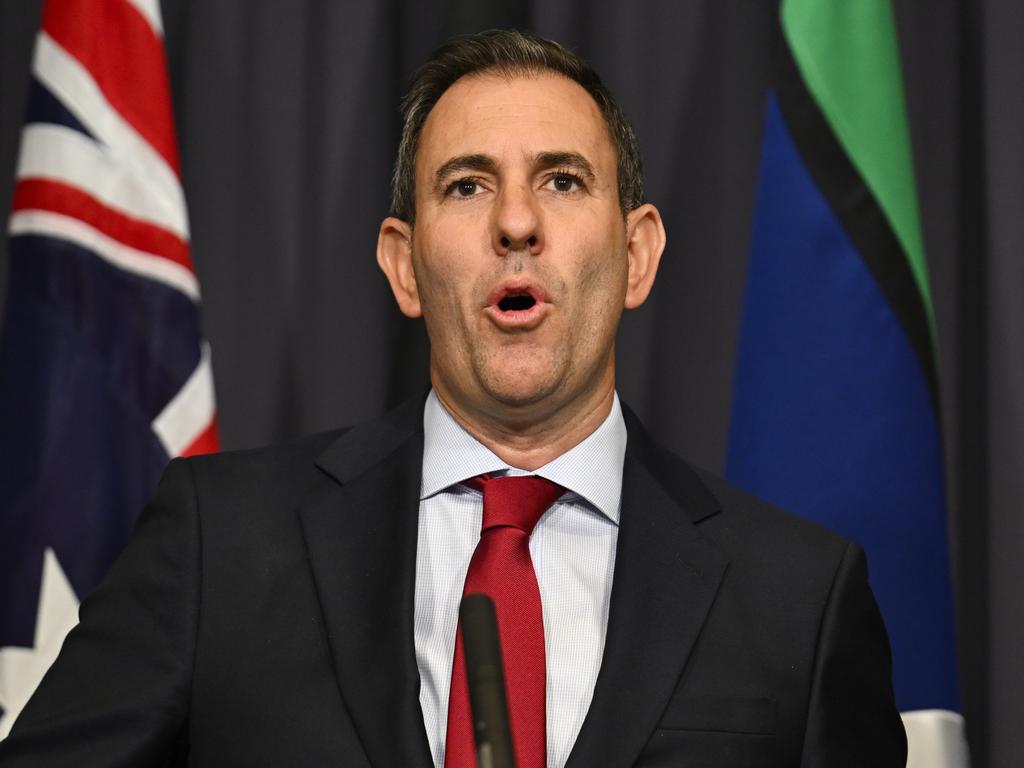Industry captains pool their resources
Concerns over softening private capital expenditure and growing red tape have brought 23 peak industry bodies together to plan a co-ordinated response on productivity.

Concerns over softening private capital expenditure and growing red tape have brought the heads of Australia’s 23 peak industry bodies to an inaugural meeting in Sydney to plan a co-ordinated response to the Albanese government’s second-term plans to boost productivity.
Following Thursday’s release of the biggest contraction in private capital expenditure since 2020, the business groups said in a joint statement the “most immediate” opportunity for reform was in the area of business investment and innovation, followed by a reduction in red tape and planning approval times.
“Productivity growth over the past decade was the weakest in six decades, and we know that improving productivity is essential to attracting investment,” the joint statement reads.
As the group met, official statistics showed seasonally adjusted retail sales slipped 0.1 per cent, surprising economists and marking the first monthly decline since January.
AMP chief economist Shane Oliver said the spate of weak economic data this week might push the Reserve Bank into another rate cut in July.
“Soft economic data in the past week means that the July RBA meeting still remains ‘live’ for a rate cut,” Mr Oliver said.
“Weak data for business investment, consumer spending and housing approvals all … suggest that growth may be coming in weaker than expected.
“Tax and rate cuts will help but the consumer is still clearly struggling, with real retail sales per person trending down so far this year after a mild rise into late last year. The cost of living remains a problem – falling inflation is not the same thing as falling prices.”
AMP still expects the next 0.25 per cent point rate cut to come in August but says there is still a chance for cuts to come earlier and faster. Financial markets now see a 70 per cent chance of a 0.25 per cent cut in July and three cuts by year’s end.
Jim Chalmers acknowledged this week that even with lower inflation and two interest rate cuts in three months, “we know people are still under pressure”.
The Treasurer has repeatedly said that the “best kind of growth is private sector-led growth” but has pushed back on business calls to make allowances and tax breaks permanent.
High energy and labour unit costs and heightened uncertainty from Donald Trump’s trade war are expected to weigh on investment plans this year.
KPMG economist Terry Rawnsley said the cautious spending by consumers “could be the first insight into how the current global uncertainty is translating into household spending”.
“The slowing retail figures and the flat private-sector investment capex figures released yesterday shows the economy is still fairly fragile, which justifies the RBA’s recent rate cut,” he said.
The Albanese government has overseen a surge in public spending, with the public sector now amounting to a record share of the economy – a shift that is squeezing out private-sector activity and fuelling inflation.
The business groups on Friday said they welcomed the government’s commitment to putting productivity at the centre of their second-term agenda, particularly through the Productivity Commission’s “five pillars” work.
The PC is currently calling for submissions on how to “support business investment through corporate tax reform”. It is likely to recommend tax changes when handing down its preliminary report, but Dr Chalmers said he would not agree to all recommendations the PC delivers in that report due in a few months.
Council of Small Business Associations CEO Luke Achterstraat, who attended the meeting, said while tax reform would play a key part in scaling up business investment, major changes to regulation were also needed.
“Small business owners are telling us they now spend up to 15 hours per week on red tape and paperwork. That’s thousands of hours of lost productivity,” Mr Achterstraat said. “Duplicated processes, endless forms and reporting for reporting’s sake are some of the top culprits.
“We need a red tape-reduction reboot that creates more certainty and less duplication for businesses, especially those seeking to grow and employ.”
Business leaders have also raised concerns that a second-term Labor government will deliver on a key demand from union chiefs to roll out an entitlements scheme that they believe could force businesses to pay billions of dollars in entitlements each year into new union-linked funds.







To join the conversation, please log in. Don't have an account? Register
Join the conversation, you are commenting as Logout